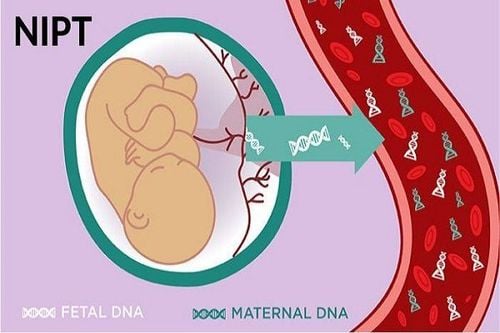This is an automatically translated article.
Many people until now still do not know what amniocentesis is? In fact, fetal amniocentesis is an invasive procedure that is performed by using a small needle through the abdominal wall, through the uterine muscle, aspirating amniotic fluid and bringing it for testing.Video content consulted by Specialist Doctor I Truong Thi Phuong - Diagnostic Imaging Department - Vinmec Ha Long International Hospital
The amount of amniotic fluid removed will be regenerated by the body and the baby will not be short of amniotic fluid. If you are pregnant with twins, your doctor may insert a needle into your uterus twice to collect amniotic fluid from two separate amniotic chambers.
Amniocentesis is not a test that can detect all abnormalities, but it is a test to diagnose high-risk cases of genetic abnormalities, such as Down syndrome, heart disease. anemia, myasthenia gravis, cystic fibrosis, Tay-Sachs syndrome and other similar conditions.
Not all pregnant women need an amniocentesis test to test for fetal abnormalities. Amniocentesis, as well as chorionic villus sampling and fetal umbilical cord blood collection, are only performed in certain high-risk women with certain genetic disorders. Commonly indicated cases of fetal amniocentesis include:
When previous screening tests such as triple test, combined test, noninvasive screening test (NIPT) show high-risk results, nuchal translucency. The fetus is thickened and the fetus is at risk for Down syndrome, blood diseases, myasthenia gravis, cystic fibrosis, Tay-Sachs syndrome and other similar diseases. Fetal ultrasound detects malformations such as cleft palate, cleft lip, heart defects, dilated ventricles, abnormal kidney structure, etc. Wife over 35 years old, spouse with genetic disorders or The wife has a history of giving birth to children with genetic defects, chromosome disorders. In addition to the function of amniocentesis to test for fetal malformations, amniocentesis may be indicated when the patient has symptoms of amniotic infection, when it is necessary to determine the maturity of the fetal lungs when it is necessary to terminate the pregnancy due to diseases. as preeclampsia. When necessary, perform amniocentesis when gestational age is 16 weeks or more, as soon as possible. At 16 weeks, enough amniotic fluid has been produced so that the doctor can aspirate the necessary amount of amniotic fluid without affecting the baby, and the baby's skin cells are shed in the amniotic cavity enough for testing. experience, this helps bring safety for both mother and baby.
There are still indications for amniocentesis of the fetus at a later week, however, the later, if the fetus has abnormal problems, the handling and termination of pregnancy will face many difficulties.
How blood is taken in the hand, amniocentesis is also done in the same way, the doctor will talk to the mother during fetal amniocentesis to help her forget about worries. This is a fairly gentle procedure, so pregnant women can be completely assured when performing amniocentesis at reputable and quality medical facilities.
Please dial HOTLINE for more information or register for an appointment HERE. Download MyVinmec app to make appointments faster and to manage your bookings easily.













